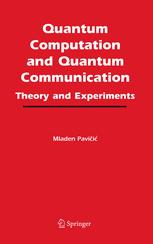

Most ebook files are in PDF format, so you can easily read them using various software such as Foxit Reader or directly on the Google Chrome browser.
Some ebook files are released by publishers in other formats such as .awz, .mobi, .epub, .fb2, etc. You may need to install specific software to read these formats on mobile/PC, such as Calibre.
Please read the tutorial at this link: https://ebookbell.com/faq
We offer FREE conversion to the popular formats you request; however, this may take some time. Therefore, right after payment, please email us, and we will try to provide the service as quickly as possible.
For some exceptional file formats or broken links (if any), please refrain from opening any disputes. Instead, email us first, and we will try to assist within a maximum of 6 hours.
EbookBell Team

4.4
52 reviewsThe field of quantum computing has experienced rapid development and many different experimental and theoretical groups have emerged worldwide.This book presents the key elements of quantum computation and communication theories and their implementation in an easy-to-read manner for readers coming from physics, mathematics and computer science backgrounds. Integrating both theoretical aspects and experimental verifications of developing quantum computers, the author explains why particular mathematical methods, physical models and realistic implementations might provide critical steps towards achieving the final goal - constructing quantum computers and quantum networks. The book serves as an excellent introduction for new researchers and also provides a useful review for specialists in the field.